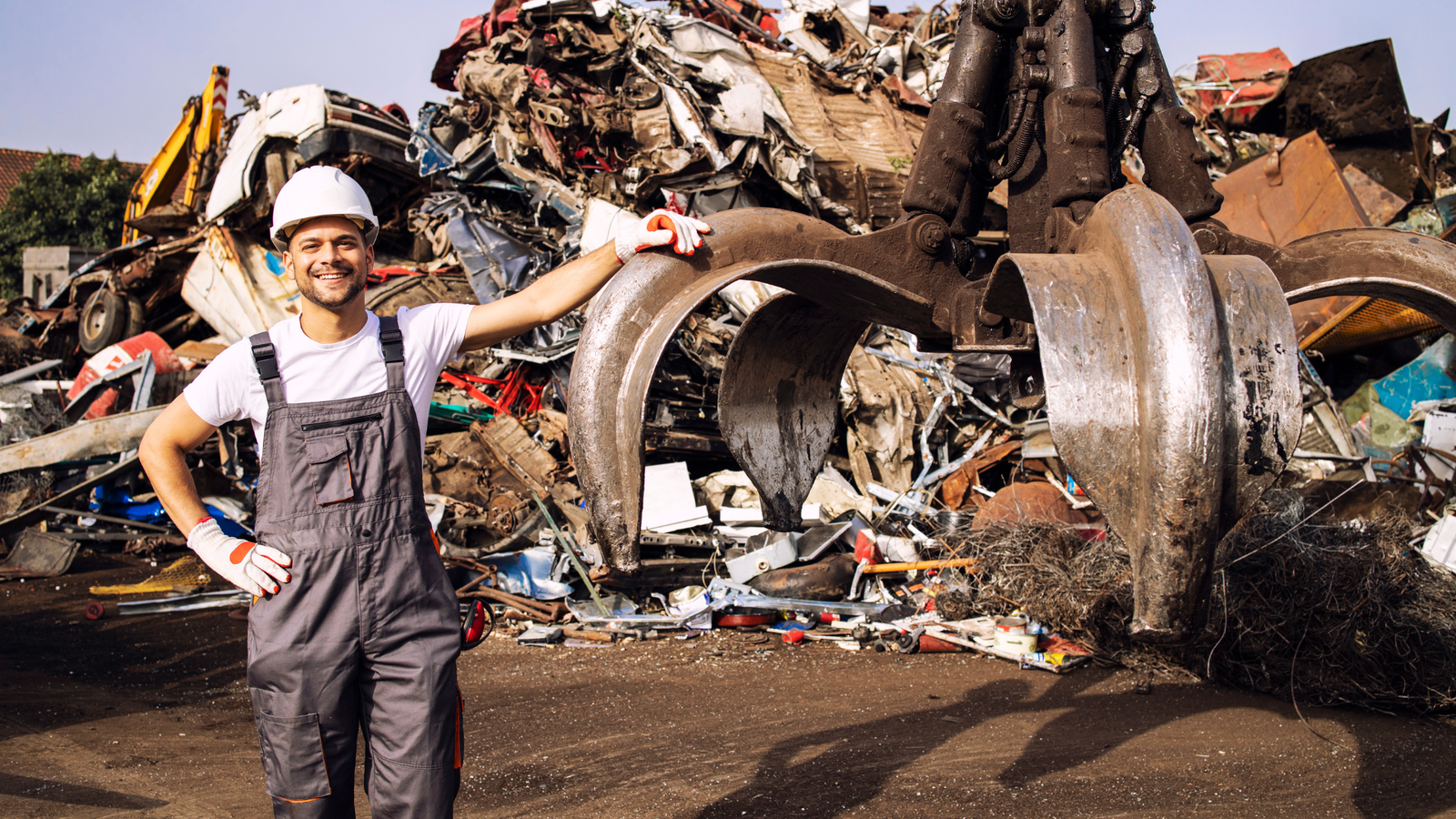![]()
The global trade in scrap metal has become a significant industry, driven by the growing demand for raw materials, the need for recycling and reducing waste, and the economic benefits of scrap metal processing. While importing scrap metal has several economic advantages, it raises concerns about its environmental and sustainability impacts. This article explores the various environmental and sustainability aspects of scrap metal import, focusing on its positive contributions and the challenges it presents.
Resource Conservation
One of the critical sustainability benefits of scrap metal import is resource conservation. Using recycled scrap metal reduces the demand for virgin ores and metals, which require extensive mining and processing operations. Mining and processing activities have well-documented environmental impacts, including water pollution, habitat destruction and greenhouse gas emissions. By importing and recycling scrap metal, we can significantly reduce the pressure on natural resources and mitigate these environmental harms.
Energy Savings
Another essential aspect of scrap metal import is the energy savings it offers. The recycling process for scrap metal typically requires less energy than raw ores’ extraction and refinement. Energy-intensive processes, such as smelting and refining, are necessary to transform raw materials into usable metal products. Utilizing scrap metal in manufacturing reduces these energy requirements, lowering greenhouse gas emissions and a smaller carbon footprint.
Reduction in Greenhouse Gas Emissions
Reducing greenhouse gas emissions is crucial to global efforts to combat climate change. Importing scrap metal contributes to this goal by promoting recycling and reducing the need for energy-intensive primary metal production. The extraction, transportation, and processing of virgin ores emit vast amounts of carbon dioxide (CO2) and other pollutants. In contrast, recycling scrap metal generates fewer emissions, making it an environmentally responsible choice.
Waste Reduction
Scrap metal import plays a pivotal role in waste reduction. Without recycling, end-of-life metal products, such as automobiles, appliances, and construction materials, would likely end up in landfills or incinerators. These disposal methods consume valuable space and release harmful pollutants into the environment. Importing scrap metal ensures that these materials are diverted from landfills and repurposed, extending the lifecycle of metals and reducing the environmental burden of waste disposal.
Economic Benefits
The economic benefits associated with scrap metal import are significant. The recycling industry generates jobs, stimulates economic growth, and contributes to local and national economies. Importing scrap metal creates opportunities for metal processing facilities, scrapyards, and recycling centres, which employ skilled and unskilled workers. Additionally, the recycling industry generates revenue by selling recycled metals, promoting trade and economic stability.
Challenges and Environmental Concerns
While scrap metal import offers several environmental and sustainability advantages, it has challenges and concerns. It is essential to address these problems to ensure that the importation of scrap metal remains a responsible and sustainable practice.
Contamination and Hazardous Materials
One of the significant challenges associated with scrap metal import is the potential for contamination and the presence of hazardous materials. Scrap metal can be contaminated with substances like oil, paint, or other chemicals, which must be properly removed and disposed of during recycling. Failure to do so can result in health risks for workers and nearby communities and environmental pollution. Adequate monitoring and regulation are essential to ensure that imported scrap metal meets safety and environmental standards.
Transportation Impacts
The transportation of scrap metal over long distances can have adverse environmental effects. The emissions from trucks, ships, and trains that transport scrap metal contribute to air pollution and greenhouse gas emissions. To mitigate these impacts, it is essential to prioritise energy-efficient transportation methods, invest in cleaner technologies, and promote regional recycling to reduce the need for long-distance transportation.
Environmental Regulations and Enforcement
Effective environmental regulations and their enforcement are critical for managing the environmental impacts of scrap metal imports. Governments and regulatory bodies must ensure that imported scrap metal is processed in compliance with environmental standards. Insufficient regulations or lax enforcement can lead to improper handling of materials, resulting in environmental damage and health risks.
Global Trade Dynamics
Global trade dynamics, including tariffs, trade disputes, and geopolitical tensions, can impact the flow of scrap metal imports and exports. These dynamics can disrupt the supply chain and affect the availability of scrap metal for recycling. Ensuring the stability of the scrap metal trade is essential for maintaining the environmental and economic benefits associated with recycling.
Conclusion
Scrap metal import is vital in promoting environmental sustainability by conserving resources, reducing energy consumption, cutting greenhouse gas emissions, and minimising waste. It also offers significant economic benefits by creating jobs and stimulating economic growth. However, challenges such as contamination, transportation impacts, and regulatory enforcement must be addressed to ensure that scrap metal import’s environmental and sustainability benefits are maximised while minimising potential adverse effects.
Governments, industries, and stakeholders should collaborate to develop and implement adequate regulations, invest in cleaner transportation technologies, and promote the best recycling and waste management practices to maintain a responsible and sustainable approach to scrap metal import. By doing so, we can continue to harness scrap metal imports’ positive environmental and economic potential while mitigating its challenges and concerns.
Source:https://ecoserveindia.com/environmental-and-sustainability-aspects-of-scrap-metal-import.html





